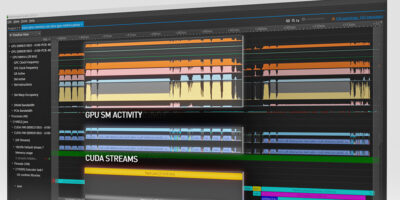CUDA-X library updates address 6G, robotics and quantum computing
At GTC 2022, Nvidia announced more than 60 updates to CUDA-X libraries. The company claimed they will allow new areas to access accelerated computing capabilities. For example, they are expected to accelerate work in quantum computing and 6G research, logistics optimisation research, robotics, cybersecurity, genomics and drug discovery as well as data analytics.
The updates to CUDA-X libraries and tools “dramatically improve” the performance of the CUDA software computing platform and many are immediately available.
“Innovation in AI and accelerated computing is driving major scientific breakthroughs and the creation of new applications and services in virtually every industry,” said Greg Estes, vice president of Developer Programs at Nvidia.
Built on top of CUDA, the company’s platforms for AI, HPC (high performance computing) and graphics include software development kits and tools that enable higher performance and accelerated algorithms across multiple application domains. The updates make the Nvidia systems that developers already use across science, AI and data processing, even faster, said the company.
Included in the GTC announcement is the cuQuantum, for accelerating quantum circuit simulation. It is generally available and – for the first time – available in the cuQuantum DGX Appliance, which provides HPC researchers a full quantum simulation stack optimised for deployment on the Nvidia DGX platform. cuQuantum is integrated as a back end in popular simulators from Google Quantum AI, Xanadu and Oak Ridge National Laboratory. It is also now being offered as a part of quantum application development platforms from Classiq and Zapata Computing, and is being used by QC Ware, Xanadu and others to power quantum research at scale in areas from chemistry to climate modelling.
There is also Sionna, for 6G physical-layer research. This is a new, GPU-accelerated, open-source library, with native support for the integration of neural networks and machine learning. Sionna enables rapid prototyping of complex communication system architectures.
The Rapids Accelerator for Apache Spark speeds processing by over three times with no code changes.
For cybersecurity, there is Morpheus, which makes it possible to analyse up to 100 per cent of one’s data in real time, for more accurate detection and faster remediation of threats as they occur.
Another update is Nsight Systems, for system-wide visualisation of an application’s performance. It allows developers to see how GPU- accelerated libraries use system resources, interact with the application and identify optimisation opportunities to reduce bottlenecks.
Other library updates include Monai for medical imaging, Maxine, for communications, Riva, for speech AI, Merlin, for recommender systems and Isaac, for robotics.




